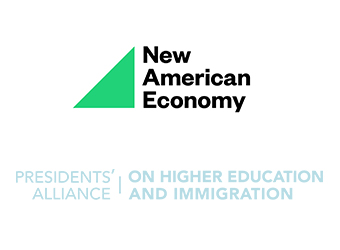 Within the next few weeks, the United States Supreme Court is expected to weigh in on the fate of the Deferred Action for Childhood Arrivals (DACA). The program was created in 2012 when then-President Barack Obama issued an executive order to grant eligible undocumented youth government protection from deportation and the ability to legally seek employment and higher education. Though President Donald Trump terminated the program in 2017, federal litigation in lower courts has temporarily kept the program alive for existing recipients.
Within the next few weeks, the United States Supreme Court is expected to weigh in on the fate of the Deferred Action for Childhood Arrivals (DACA). The program was created in 2012 when then-President Barack Obama issued an executive order to grant eligible undocumented youth government protection from deportation and the ability to legally seek employment and higher education. Though President Donald Trump terminated the program in 2017, federal litigation in lower courts has temporarily kept the program alive for existing recipients.
However, there are several strict eligibility requirements to qualify for DACA, and most undocumented students pursuing postsecondary education in the U.S. do not qualify. This highly-anticipated DACA case also provides an opportunity to consider the other undocumented members of our communities not included in this case.
The New American Economy and the Presidents’ Alliance on Higher Education and Immigration recently published a study in April revealing there are thousands of undocumented students in the United States pursuing degrees and gaining skills that contribute to the American economy. According to the report, many undocumented immigrants, regardless of DACA status, go to school, own homes, and pay taxes in the U.S. They also include thousands of nurses, doctors, and others working in healthcare on the frontlines of the COVID-19 pandemic.
 While there are an estimated 454,000 undocumented students in postsecondary education across the nation, the majority of students live in California (20%), Texas (15%), Florida (9%), New York (7%), and Illinois (5%). Around 42,000 undocumented postsecondary students live in Florida and make up about 3% of the state’s higher education student population. Only one in three of Florida’s 42,000 undocumented students are eligible for DACA.
While there are an estimated 454,000 undocumented students in postsecondary education across the nation, the majority of students live in California (20%), Texas (15%), Florida (9%), New York (7%), and Illinois (5%). Around 42,000 undocumented postsecondary students live in Florida and make up about 3% of the state’s higher education student population. Only one in three of Florida’s 42,000 undocumented students are eligible for DACA.
The report notes that states with policies to expand access to higher education result in increased college enrollment for undocumented students, while boosting local workforces. These policies can be essential to undocumented students, who are not eligible for federal aid and often do not have access to work. An increasing number of states give undocumented students who meet state residency and certain other requirements access to in-state tuition.
Florida is one such state, and FCAN has previously reported on this policy and spoken with students who have benefited from in-state tuition waivers. However, undocumented students that are eligible for in-state tuition in Florida do not have access to state aid, as is the case in many states. Research shows that states that expand access to higher education for undocumented students see a reduction in high school dropout rates and an increase in postsecondary enrollment.
Undocumented students in Florida and across the nation make up a variety of races and ethnicities, and study a range of majors. However, they hold some commonalities. The majority of undocumented students enroll in two- and four- year public colleges and universities, and a large number have chosen STEM and healthcare-related fields. This suggests undocumented students are preparing themselves to fill critical skills shortages, and are positioned to support themselves, their local communities, and their state. These students can benefit Florida’s workforce and economy, if given the chance.
RELATED ARTICLES:
Emiliano Morales Flores was able to afford college thanks to Florida law
FCAN brief shows where undocumented students are attending college in Florida
